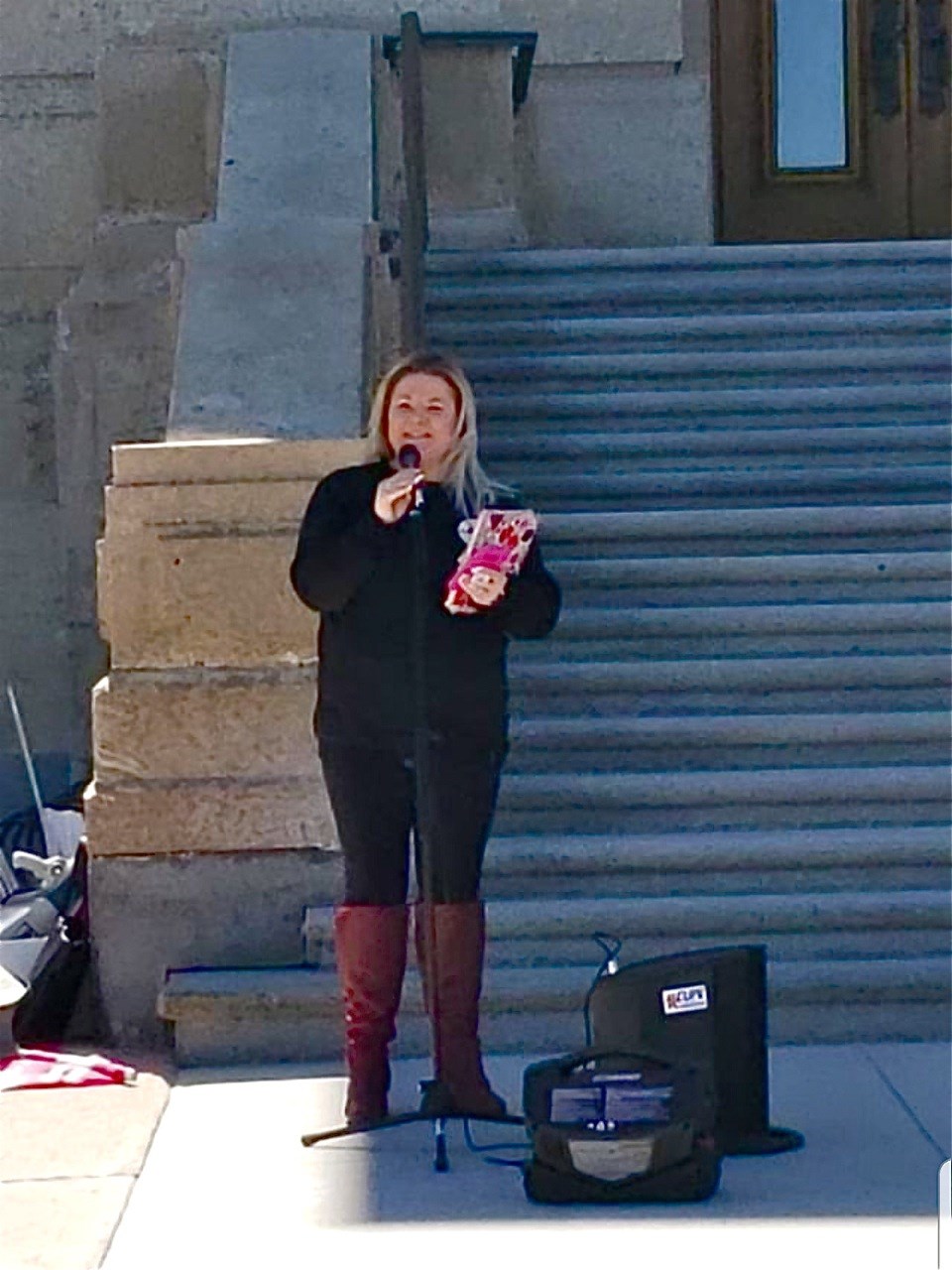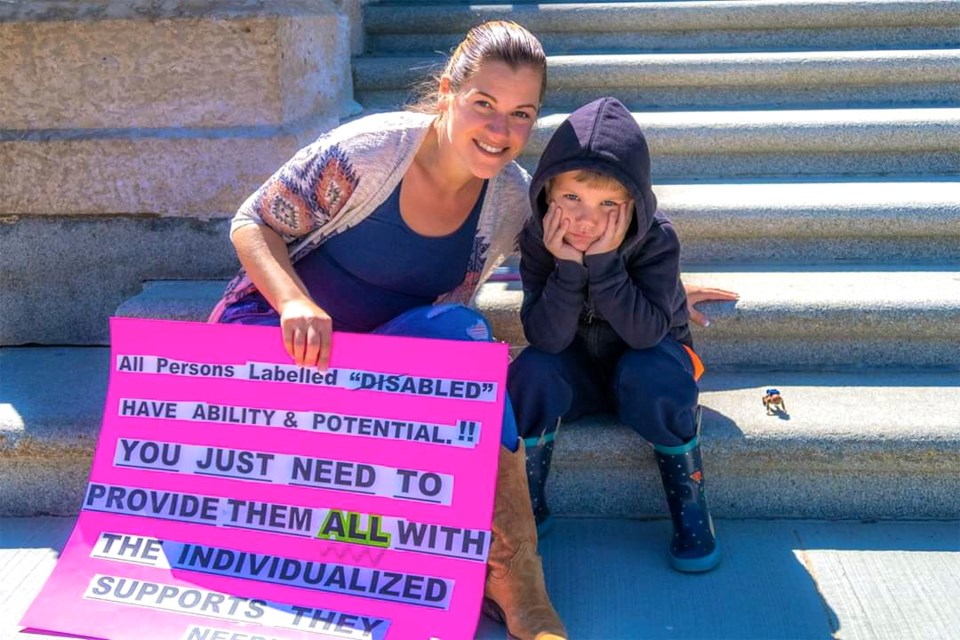“Autism is one word attempting to describe millions of different stories.” That statement was a slogan of the first Saskatchewan Spectrum Rally that Landon and Katie Emde of Midale hosted in front of Saskachewan Legislative Building in Regina on May 8.
A number of families from Estevan and area joined the rally to attract attention to their concerns and challenges they face raising children with autism spectrum disorders (ASD). And many who couldn’t make it to the rally wrote letters and phoned their MLAs.
Katie Emde, who opened the rally explaining her role as a person who connects families and helps them to navigate the system, said the event exceeded their expectations.
“Not only did we get what we expected, but also it started some really good conversation not only with just myself and families but also with Patrick Maze who is the president for the Saskatchewan Teachers’ Federation,” said Emde.
Maze joined the rally last Wednesday to talk about how important it is to support teachers in classrooms and how vital the funding is for education sector so teachers are able to provide the very best support and learning experience for all children.

“Right now he is finding kind of the same findings as I am with families that I deal with. It’s that not only families that have children on the spectrum are drained, stressed out and seeing their children fall through the gaps in the education system, but he is actually seeing teachers having a very hard time navigating and being able to teach the class,” said Emde.
She noted that classroom sizes not only in Estevan but also in Weyburn, Regina and all over Saskatchewan are quite high and often there is a lack of support for children on ASD in classrooms.
“For a teacher, if you have a classroom that has, say, three children, maybe one of them is on the spectrum and another two children that have one shape or form of high needs performance. And the teacher doesn’t have extra support or EA (educational assistance) support … her attention is directed to those children and then not as much towards children that are typical,” said Emde.
The rally participants discussed what could be done to resolve those problems in the education system. They also looked at the gaps in the health system, which struggles with long waiting lists for children that are going through it to get diagnosed with autism or just to see occupational therapists.
“(We want to be sure that the families) are getting the support they need and the results they want, so their children are able to live their very best lives. And we want those supports to continue through their whole entire life. And them to have a consistency of support,” said Emde.
She believes that the lack of consistency through education and health systems is one of the main problems when it comes to children on ASD in Saskatchewan. And that gap leads to more serious problems.
“We are seeing an increase of children that are getting homeschooled in the last two years throughout the province. We are seeing an increase in pre-teens that are on the spectrum in the suicide rate, which is the huge concern for families who have children that are on the spectrum,” said Emde.
Members of the Canadian Union for Public Employees (CUPE) and Service Employees International Union-Healthcare (SEIUH) also got to speak during the event.
After all, the rally was about raising awareness about the issue.
“Nobody wants to talk about how many kids in the province are affected by autism. Nobody wants to recognize the amount of kids that are accessing the individualized funding for children under the age of six. So yesterday was a really big wake-up call and a really good day in the sense of that,” said Emde.
On the consistency base, Emde deals with over 600 families in Saskatchewan and advocates for them on the provincial level, so she has a good understanding of the scale of the problem. And that gives her an opportunity to see where and how the changes may appear.
“We’ve always been advocating for individualized funding to be above the age of six. And after yesterday, after talking with families and everything, I realized that we are going to stop advocating for that. Because the reality of it is our province cannot afford to give everyone’s kid individualized funding,” said Emde.
According to her data, there are about 700 children under the age of six in Saskatchewan accessing the individualized funding, which is already costing a lot of money. When, if families are not getting that funding after the age of six, the money can go towards changes in education or health sectors to resolve some fundamental issues and improve those children’s lives this way.
The rally also gave a chance to families to be vocal about what they are struggling with and tell their stories.
“That is exactly how the change will happen. A lot of those MLAs and ministers and (others) will start to understand what a lot of these families go through and what are their day-to-day struggles are,” said Emde.
She believes that as province Saskatchewan has reached a point where there are too many children on ASD to keep ignoring the problem, and the rally was just the beginning of a big conversation.



